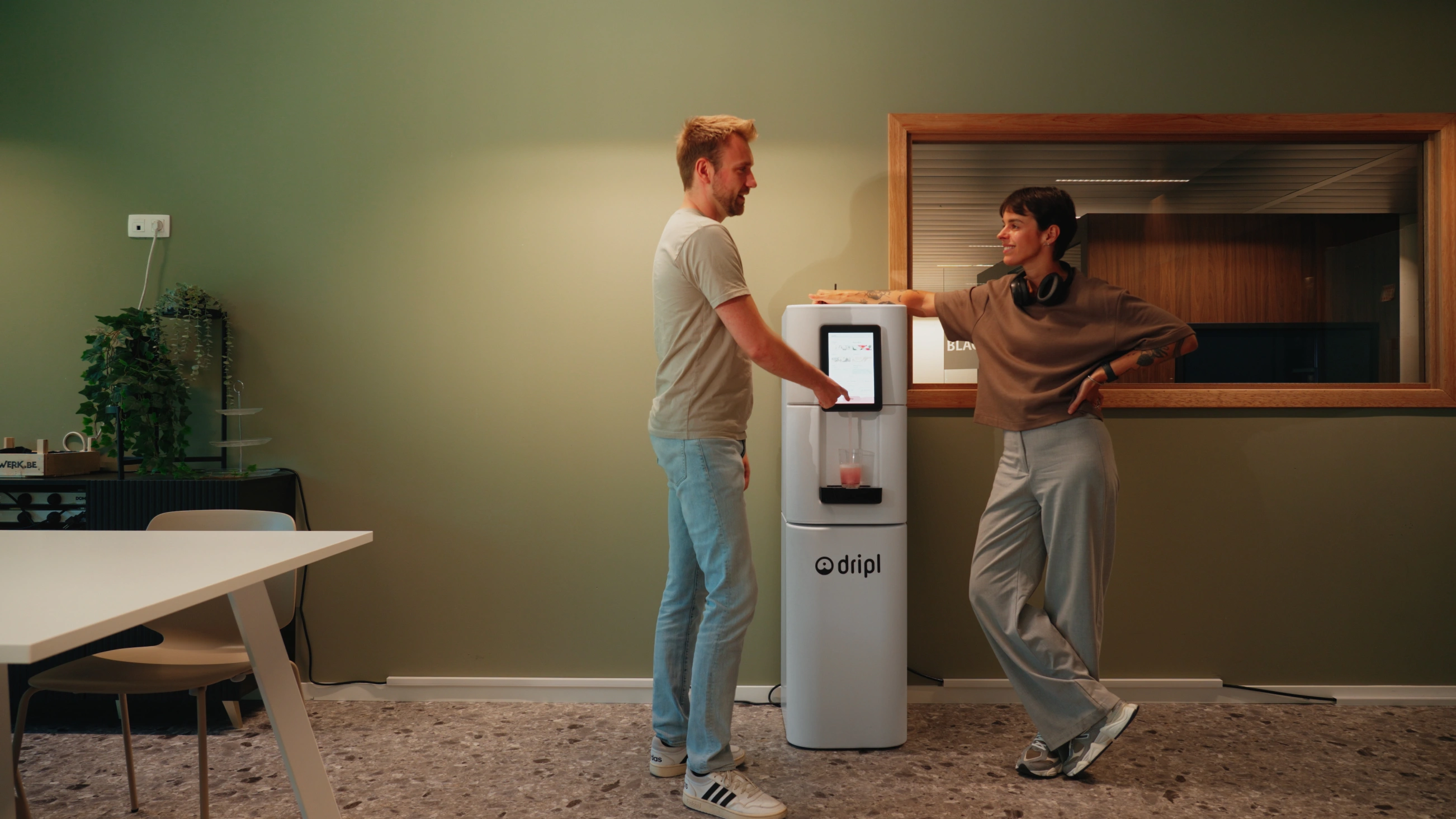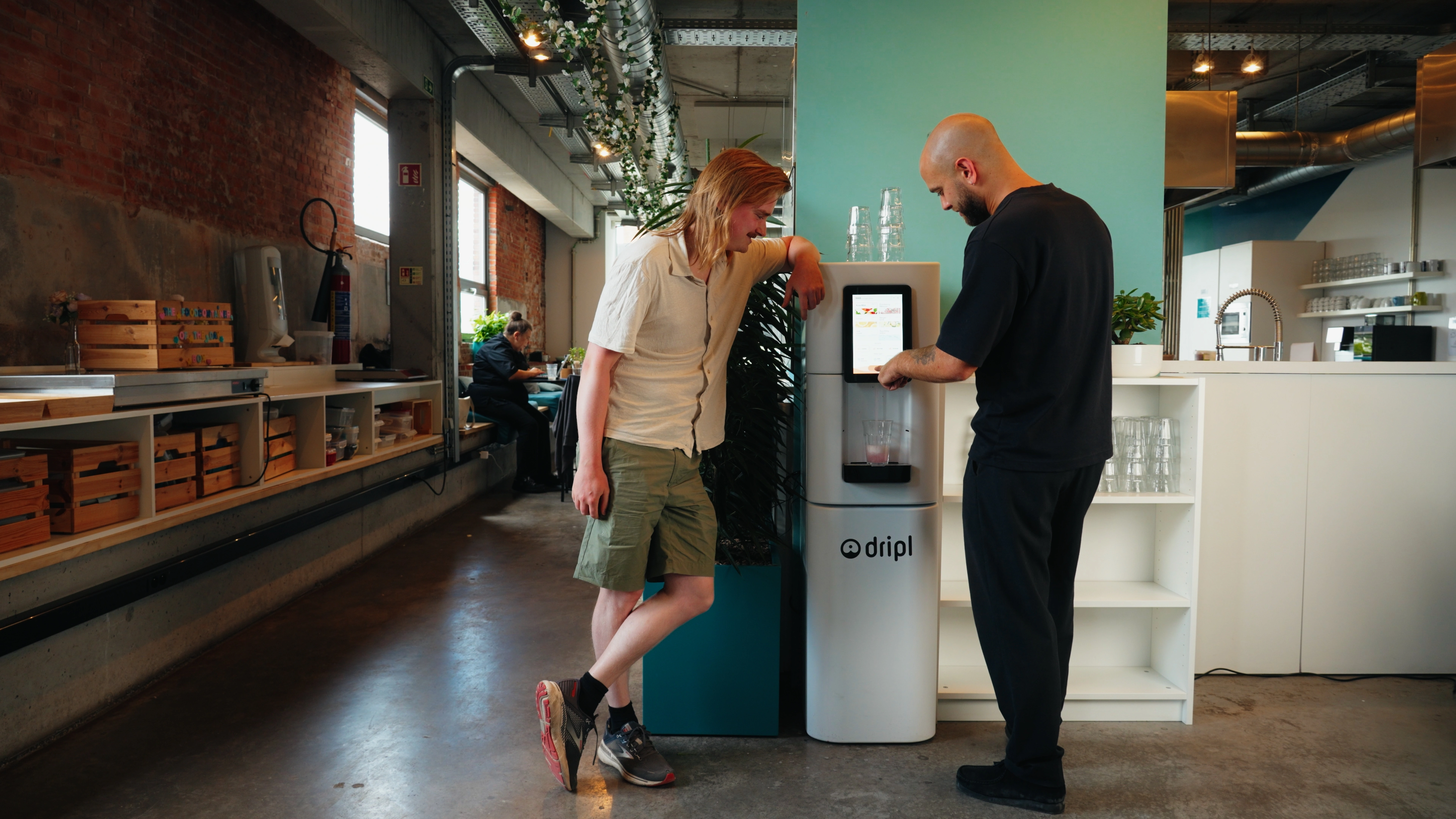All blog posts
Facility managers & sustainability: trump card in the 'war for talent'

Too many vacancies, too few talented people to fill them. Now that they have the power, applicants will settle for nothing less than the best experience in their job search. That's why companies are pulling out all the stops to attract and retain employees. Meanwhile, facility managers, the new experience managers, are joining the battle in the "war for talent." It's up to them to make the workplace more sustainable and design it so that a day at the office feels like coming home.
In 2021, 362,510 vacancies flowed into Flanders, half as many as the previous year. The same trend is evident in the Netherlands. There they counted a record 387,000 vacancies in December, a whopping 16,000 more than the previous quarter. This sharp increase continues in all sectors. The downside of the economic boom is that these vacancies are difficult to fill. No surprise: the "war for talent" is raging more fiercely than ever.
All for the experience
This situation has reversed the roles: employees, not employers, are in charge. This shift is equally evident in the recruitment and retention phases. During their job search, applicants are guided by their experience. The 'candidate experience' answers several pressing questions: What is it like to work in the organization? What does the office environment look like? Or how does management treat its staff? Companies face the significant challenge of making a difference in this regard.
The same applies to the 'employee experience'. Whether they've just been hired or have been on the payroll for years, employees want to fit in and feel at home in the workplace. They rely on their employer for a sense of belonging.
Due to this intense focus on experience, several experts are seeing their roles change. One is these is the facility manager, responsible for managing buildings and coordinating services like catering and cleaning. This role is increasingly evolving into that of experience manager. The focus is largely on the "office experience. This is not surprising, as the workplace plays a significant role in choosing an employer.
A sustainable 'office experience'
A workplace today faces many challenges. The environment must energize, foster teamwork, and simultaneously facilitate individual focus. And, not to forget, contribute to the health and well-being of employees.
With this in mind, traditional, noisy open-plan offices are making way for team zones and modular meeting rooms. Or, to increase productivity, stimulate creativity, and purify the air, plants brighten up office spaces.
By focusing on this positive "office experience," companies encourage hardened home workers to return to the workplace. A home office has its advantages, but meetings or brainstorming sessions with colleagues are more effective in the same space.
In addition, after the industrial and digital revolutions, we are in the midst of the sustainability revolution. Consequently, job applicants and employees expect companies to take care of the planet. Several studies identify climate change as the biggest issue keeping young professionals awake. Nearly 67% prefer an employer that puts its money where its mouth is when it comes to sustainable measures. In fact, the majority are willing to take a pay cut to work for an environmentally friendly company.
No doubt about it: companies that weave sustainability into their DNA are the winners of the "war for talent. That immediately makes it an important part of the 'office experience'.
Tips for sustainable measures
What steps can a facility manager take to make the workplace more sustainable? We collected tips for:
- An energy-saving office space
- Choose energy-saving bulbs instead of regular bulbs
- Hang LED motion sensors in rooms employees use less frequently
- Check and optimize heating and air conditioning usage regularly
- Invest in appliances with the most energy-efficient A+++ label
- Let computers and laptops doze off after a few minutes in sleep mode. Turn them, as well as all printers, off after work
- Insulate windows and central heating pipes. An airtight building reduces energy loss and produces reduced CO2 emissions
- Consider investing in solar panels or wind turbines for carbon-neutral energy production
- Environmentally conscious materials
- Order green alternatives to traditional office supplies. Consider notebooks made from coffee grounds, refillable pens made from PET bottles or laptop stands made from bamboo
- Consider climate-neutral printing: opt for an energy-efficient printer, get chlorine-free bleached paper and use eco-friendly ink cartridges and toners
- Consider sustainable furniture, such as recycled or cradle to cradle (C2C) specimens. C2C products are designed in such a way that, after use, they get a new life in other products or materials
- A sustainable food and beverage offering
- Switch to organic or fair trade brands for coffee and tea
- Avoid cans and plastic bottles or cutlery. Instead, choose storage boxes and reusable bottles and eating utensils
- Reduce consumption of meat, as such production leads to high greenhouse gas emissions and acidification of soil and air. Replace it with plant protein-rich foods (think legumes or tofu)
- Favour a short food chain by partnering with local producers. That approach ensures fresh and quality food, reduces energy consumption and limits transportation and packaging waste
- Provide drinkable tap water. This is the healthiest choice and reduces CO2 emissions by decreasing the production and transportation of beverage bottles
A refill solution for drinks
Do you want to enrich your "office experience" with a beloved sustainable solution that catches the eye immediately? One that lets you treat employees to well-deserved, cozy breaks?
Discover Dripl's Refill Point. The principle is simple: you put down your glass or reusable bottle, choose your favorite flavour and pour flat or sparkling water. A healthy, packaging-free alternative to a soda dispenser, the Refill Point is also energy efficient, as it only cools as you tap. Moreover, its carbon footprint is minimal.
Curious about the possibilities for your company? Request your trial period!

Too many vacancies, too few talented people to fill them. Now that they have the power, applicants will settle for nothing less than the best experience in their job search. That's why companies are pulling out all the stops to attract and retain employees. Meanwhile, facility managers, the new experience managers, are joining the battle in the "war for talent." It's up to them to make the workplace more sustainable and design it so that a day at the office feels like coming home.
In 2021, 362,510 vacancies flowed into Flanders, half as many as the previous year. The same trend is evident in the Netherlands. There they counted a record 387,000 vacancies in December, a whopping 16,000 more than the previous quarter. This sharp increase continues in all sectors. The downside of the economic boom is that these vacancies are difficult to fill. No surprise: the "war for talent" is raging more fiercely than ever.
All for the experience
This situation has reversed the roles: employees, not employers, are in charge. This shift is equally evident in the recruitment and retention phases. During their job search, applicants are guided by their experience. The 'candidate experience' answers several pressing questions: What is it like to work in the organization? What does the office environment look like? Or how does management treat its staff? Companies face the significant challenge of making a difference in this regard.
The same applies to the 'employee experience'. Whether they've just been hired or have been on the payroll for years, employees want to fit in and feel at home in the workplace. They rely on their employer for a sense of belonging.
Due to this intense focus on experience, several experts are seeing their roles change. One is these is the facility manager, responsible for managing buildings and coordinating services like catering and cleaning. This role is increasingly evolving into that of experience manager. The focus is largely on the "office experience. This is not surprising, as the workplace plays a significant role in choosing an employer.
A sustainable 'office experience'
A workplace today faces many challenges. The environment must energize, foster teamwork, and simultaneously facilitate individual focus. And, not to forget, contribute to the health and well-being of employees.
With this in mind, traditional, noisy open-plan offices are making way for team zones and modular meeting rooms. Or, to increase productivity, stimulate creativity, and purify the air, plants brighten up office spaces.
By focusing on this positive "office experience," companies encourage hardened home workers to return to the workplace. A home office has its advantages, but meetings or brainstorming sessions with colleagues are more effective in the same space.
In addition, after the industrial and digital revolutions, we are in the midst of the sustainability revolution. Consequently, job applicants and employees expect companies to take care of the planet. Several studies identify climate change as the biggest issue keeping young professionals awake. Nearly 67% prefer an employer that puts its money where its mouth is when it comes to sustainable measures. In fact, the majority are willing to take a pay cut to work for an environmentally friendly company.
No doubt about it: companies that weave sustainability into their DNA are the winners of the "war for talent. That immediately makes it an important part of the 'office experience'.
Tips for sustainable measures
What steps can a facility manager take to make the workplace more sustainable? We collected tips for:
- An energy-saving office space
- Choose energy-saving bulbs instead of regular bulbs
- Hang LED motion sensors in rooms employees use less frequently
- Check and optimize heating and air conditioning usage regularly
- Invest in appliances with the most energy-efficient A+++ label
- Let computers and laptops doze off after a few minutes in sleep mode. Turn them, as well as all printers, off after work
- Insulate windows and central heating pipes. An airtight building reduces energy loss and produces reduced CO2 emissions
- Consider investing in solar panels or wind turbines for carbon-neutral energy production
- Environmentally conscious materials
- Order green alternatives to traditional office supplies. Consider notebooks made from coffee grounds, refillable pens made from PET bottles or laptop stands made from bamboo
- Consider climate-neutral printing: opt for an energy-efficient printer, get chlorine-free bleached paper and use eco-friendly ink cartridges and toners
- Consider sustainable furniture, such as recycled or cradle to cradle (C2C) specimens. C2C products are designed in such a way that, after use, they get a new life in other products or materials
- A sustainable food and beverage offering
- Switch to organic or fair trade brands for coffee and tea
- Avoid cans and plastic bottles or cutlery. Instead, choose storage boxes and reusable bottles and eating utensils
- Reduce consumption of meat, as such production leads to high greenhouse gas emissions and acidification of soil and air. Replace it with plant protein-rich foods (think legumes or tofu)
- Favour a short food chain by partnering with local producers. That approach ensures fresh and quality food, reduces energy consumption and limits transportation and packaging waste
- Provide drinkable tap water. This is the healthiest choice and reduces CO2 emissions by decreasing the production and transportation of beverage bottles
A refill solution for drinks
Do you want to enrich your "office experience" with a beloved sustainable solution that catches the eye immediately? One that lets you treat employees to well-deserved, cozy breaks?
Discover Dripl's Refill Point. The principle is simple: you put down your glass or reusable bottle, choose your favorite flavour and pour flat or sparkling water. A healthy, packaging-free alternative to a soda dispenser, the Refill Point is also energy efficient, as it only cools as you tap. Moreover, its carbon footprint is minimal.
Curious about the possibilities for your company? Request your trial period!
FAQs
Get your free quote
Get your personalised quote today. We’ll get back to you soon.




-min.png)